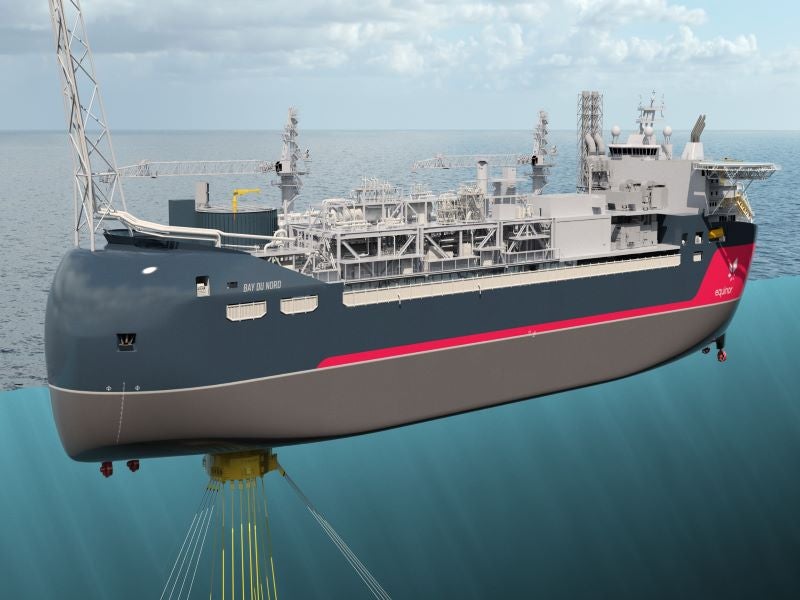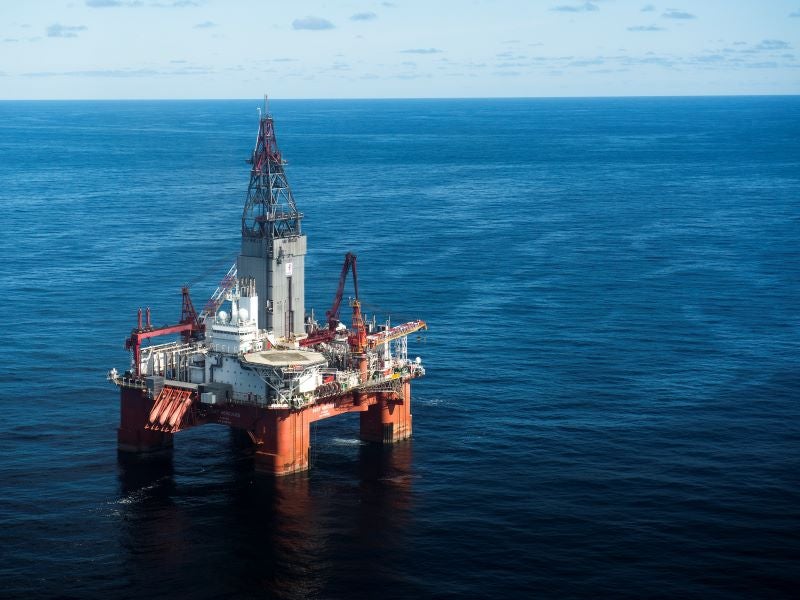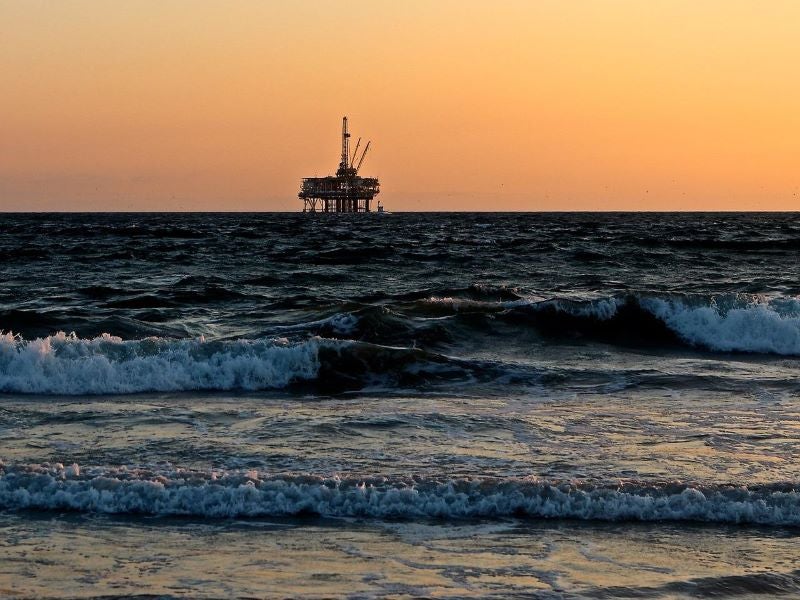The Bay du Nord project involves the development of the deepwater Bay du Nord and Baccalieu oil discovery licences in the Flemish Pass Basin, Atlantic Ocean, offshore Canada. It is the first remote deepwater project in Canada.
Equinor Canada, a subsidiary of Equinor, is the operator of the Bay du Nord development project with a 65% stake. The remaining 35% stake in the project is owned by Cenovus Energy, which acquired stakes in the Bay du Nord and Baccalieu licences, following a merger with Husky Energy in January 2021.
The Canadian government approved an environmental assessment for the Bay du Nord project in April 2022. The project is planned to be developed with an estimated total investment of £9.7bn ($12.7bn).
The project area consists of the core Bay du Nord development area and the broader project area that could comprise subsea tiebacks from future developments outside the core Bay du Nord area.
The Bay du Nord development project is expected to produce first oil in the late 2020s, with an estimated production life of 20 to 30 years.
Location and site details
The Bay du Nord development project is located in the Flemish Pass Basin, northwest Atlantic Ocean, approximately 500km northeast of St. John’s, Newfoundland and Labrador, Canada.
The project covers an area of approximately 4,900km2 and the water depth in the area ranges from 340m to 1,200m. The core development area within the Bay du Nord project is approximately 470km2, with water depth ranging between 1,000m and 1,200m.
The development area consists of Jurassic reservoirs with characteristics such as high porosity, high permeability and mature source rocks.
Bay du Nord discovery and reserves
Equinor, formerly Statoil, discovered crude oil on the Bay du Nord prospect in August 2013. West Aquarius, a semi-submersible rig, drilled the Bay du Nord discovery well in a water depth of approximately 1,100m.
The Norwegian company discovered light oil in the Baccalieu prospect in June 2016. The discovery well was drilled by the West Hercules semi-submersible rig. The Baccalieu prospect is located approximately 15km from the Bay du Nord.
The Bay du Nord oil field project is estimated to contain recoverable resources of approximately 300 million barrels of light crude oil.
Bay du Nord project development details
The Bay du Nord development project will involve subsea development and tieback to a floating production, storage and offloading (FPSO) vessel. The activities will include drilling of production wells, installation of subsea infrastructure, and mobilisation of an FPSO vessel.
The project will involve the drilling of up to 40 wells in five locations in the core development area. The subsea infrastructure will include well templates, manifolds, flowlines, umbilicals and a mooring system as well as up to two drilling installations.
The Bay du Nord project is also expected to comprise the drilling of an additional 20 wells, which could include a mix of production and injection wells, in the future development areas.
Bay du Nord FPSO
The Bay du Nord FPSO will comprise processing facilities for the separation of well stream into oil, water and gas.
The crude oil will be stored in the FPSO tanks and later offloaded to the shuttle tankers for transportation to international markets or to a transshipment facility in Whiffen Head on the island of Newfoundland.
The produced water will be treated to remove process sand and remaining oil before it is discharged into the ocean. The FPSO will utilise a portion of the produced gas for onsite power generation and the remaining gas will be re-injected into the reservoir to facilitate pressure support.
Contractors involved
DNV GL was contracted by Equinor as the Certifying Authority and Classification Society for the Bay du Nord project in October 2019. The contract included the compliance verification of the new Bay du Nord infrastructure to local and global safety requirements.
Transocean Barents, a semi-submersible drilling rig, was awarded a contract by Equinor Canada to execute the 2020 drilling campaign. Seadrill Partners’ West Hercules drilling rig performed the 2014-16 drilling campaign.
Fugro was awarded a contract by Equinor to conduct a deepwater site investigation in Flemish Pass Basin in April 2021. The scope of the contract included a seabed survey, an environmental survey and soils investigation.
Other discoveries in Flemish Pass Basin
Apart from Bay du Nord and Baccalieu, the other discoveries made by Equinor in the Flemish Pass Basin include Mizzen, Harpoon, Bay de Verde, Cappahayden and Cambriol.
Equinor is the operator of Mizzen, Harpoon and Bay de Verde discoveries with a stake of 65%. Cenovus Energy owns the remaining 35% interest in the fields.
Discovered in 2009, Mizzen was estimated to contain recoverable resources of approximately 100-200 million barrels of oil. Henry Goodrich, a semi-submersible rig, drilled the discovery well.
Equinor discovered crude oil at the Harpoon prospect in June 2013, while the Bay de Verde discovery was made in June 2016.
Oil discoveries at the Cappahayden and Cambriol prospects were made in October 2020. Equinor holds a 60% stake in the prospects and the remaining 40% stake is held by BP Canada. Transocean Barents, a semi-submersible drilling rig, drilled the discovery wells.





